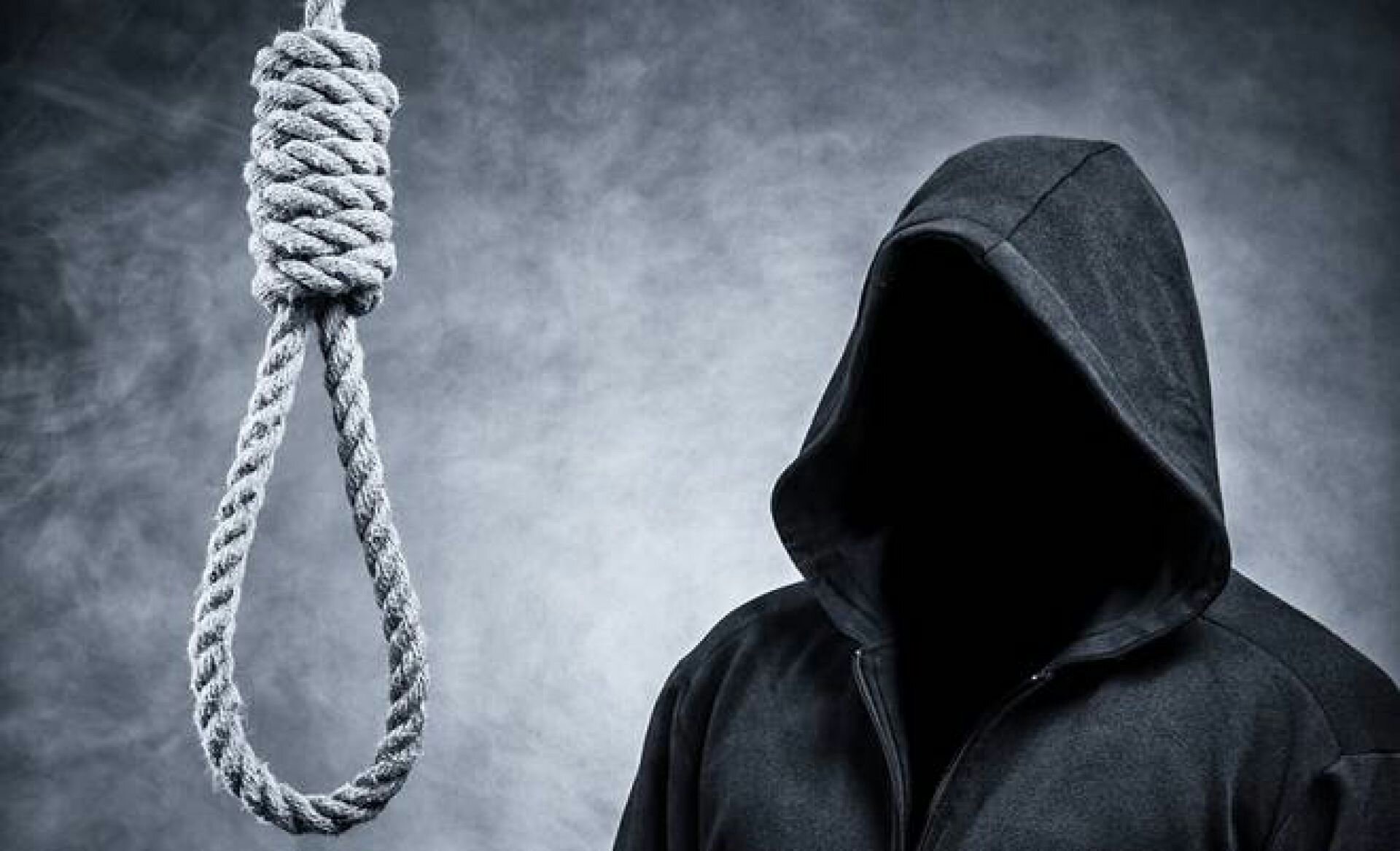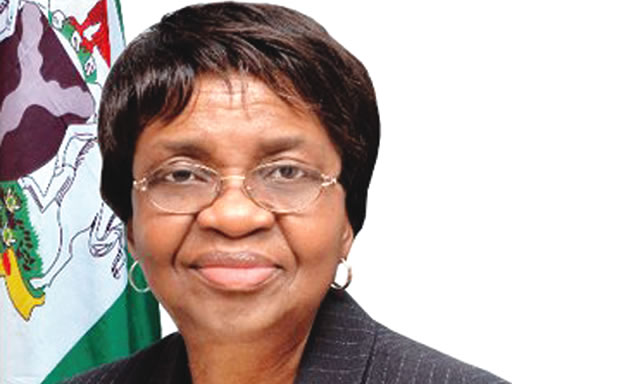From Emmanuel Adeyemi, Lokoja
Kogi State Polytechnic, Lokoja was, before now, a hotbed and breeding ground for cultists, rapists and all other criminals, who had unleashed violence, including killings, on the polytechnic community.
Prof. Salisu Usman Ogbo was appointed rector of the over 32-year-old polytechnic in 2021 by former governor Yahaya Bello to salvage the institution which was collapsing and gradually sinking into a citadel of terror, giving the state a bad reputation.
He completed his first term in office and was re-appointed for the second term commencing from February 11. He spoke with Saturday Sun on various issues that marked his first tenure.
How was the Polytechnic like when you came on board as Rector in 2021?
We came on board to inherit an institution that was confronted with myriads of issues which were hitherto seen as incurable. We inherited an institution where cultists reigned supreme as demi-gods and operating with impunity on the campus and the neighbourhood. This and many other threatening social vices made the polytechnic to be battling with deeply disturbing image issues and negative press.
We also inherited an institution without a functional student hostel, deficient in ICT, polarized along ethnic lines, notorious for untidy physical environment with dilapidated infrastructure, poor research cultures, general indiscipline and impunity among some members of the polytechnic community.
The polytechnic also had dented image and severed relationship with relevant funding agencies due to failed contract and abandoned projects spanning over 10 years. The Polytechnic also had outstanding problems of accreditation across virtually all programmes spanning nine years as well as accumulated problem of convocation after several sessions of turning out students at both the National Diploma and Higher National Diploma levels.
There were also issues of proposed new programmes that needed to be introduced as outlined in the maiden 2013-2018 Strategic Plan of the institution which was not implemented.
To fill these glaring gaps and restore the lost glory of the institution, we introduced the 3R-Mission of “Repair, Reform and Restore” which we have been implementing through consultation and collaboration.
How did you tackle the menace of cultism that Kogi Poly is noted for?
Before we came on board, the cultists were so bold, fearless and ruthless that in the broad daylight they could attack any student or lecturer without being challenged, which culminated to many loss of lives on campus
We immediately set machinery in motion to tackle this monster and other security challenges through the following measures.
Fortification of security architecture through effective intelligence gathering on the activities of cultists and other deviant groups. We did this perfectly that in every five students, we have an informant who gives us blow by blow information on any activity. In one of the deadly meetings of one of the dreaded cult groups, our intelligence was so strong that we uncovered details of their discussions, the venue and time they met, all the members present at the meeting and so many things. When we gathered this, the following morning, we now called the leader of the cult group and confronted him. He was trying to deny, then we showed him the videos of the meeting and other evidence, and he began to cry and beg.
We also embarked on the construction of a befitting security building code-named Alhaji Yahaya Adoza Bello Security House at the entrance of the Polytechnic to replace the three-room cubicle we inherited to promote efficiency amongst the security personnel. The Installation of hidden CCTV camera on the campus to monitor unholy activities and act decisively really helped us. This measure was recently expanded by His Excellency, Alhaji Ahmed Usman Ododo, through the mounting of CCTV cameras in our classrooms and other strategic places on campus.
We also provided communication gadgets for security personnel for effective communication and provided security patrol vehicles for surveillance and monitoring. We also did aggressive campus illumination through provision of solar lights and other illuminating gadgets which was recently expanded with additional 100 units by Governor Usman Ododo
We went directly to dislodge the notorious “Pipeline” which was hitherto the meeting point of cultists and replace it with barricades. We also decentralised the security structures on campus to enhance proper supervision of operatives for effective discharge of duties and efficiency. We identified key factors that caused crises on campus such as Students Tribal Associations, End of Session Celebration which was a smokescreen for cult groups to engage in bloody confrontations, often resulting in fatalities among students and non students, and we banned them.
How about the rampant exam malpractices in the school? What measures did you use in curbing them?
We changed the mode of conducting examination and introduced E-Examination/Results Computation/E-Payment. Although this was first resisted, but in the long run, it has boosted confidence and integrity in the conduct of our examination and result processing.
It has also resulted in prompt release of results on semester basis, enabling our students to check their academic status anywhere in the world and block revenue leakages in the system.
Transcript processing for our graduates, especially for those who graduated from the year 2021 has been made seamless through this measure.
We also Set up Central Examination Misconduct Committee which is tasked to investigate and recommend to the Academic Board for final decision on all cases of examination misconduct, by ensuring that the institution’s academic standards are to further give students more opportunities for fair hearing. This initiative has helped us to handle all examination misconduct related cases such that errors that may lead to litigation are minimized.
What are some of the novel ideas you introduced to put this institution in a positive limelight?
When we came on board, we discovered that our academic results and certificates were easily forged and falsified ,so we provide a new Statement of Result Template with Additional Security Features against Falsification. This upgraded template incorporates advanced security features designed to prevent falsification, ensuring that the statements of result issued to students are tamper-proof and genuine. This proactive measure reinforces our commitment to academic excellence, transparency, and accountability, while also safeguarding the interest of students and stakeholders.
Production of Maiden Annual Report for the Polytechnic was also done. Shortly after we assumed duties, we discovered that no Annual Report had been produced since the inception of the Polytechnic to serve as a guide to reflect on our past, gauge on the present and project into the future. The implication was that there was no single archive of records of the activities of the Polytechnic annually for the whole of its existence. This was not a good commentary on an institution that had existed for almost three decades. We therefore took it as a challenge for the activities of the institution in the preceding session to be documented through an Annual Report. That report was eventually produced for the 2018/2019 session, making it the first in the history of the institution. The production of Annual Report has now become a tradition in the Polytechnic, as we now have the 2019/2020 and 2020/2021 editions in place. We are already at the advanced stage of producing the 2021/2022 and 2022/2023, and 2023/2024 editions.
We understand that some of your policies like the cancellation of sales of handouts to students were aggressively resisted by some lecturers. How were you able to sail through?
Yes. Some lecturers were indeed not happy about the cancellation of sales of handouts which they see as making more money. Some incited students against us and did all kinds of things but we stood our ground. And we prevailed.
We held different meetings with our lecturers and told them we are not against production of quality handouts or textbooks but the students must not be compelled to buy the books. We went forward to set up a committee to strengthen the regulation against the indiscriminate production and sales of textbooks and empower the committee in charge with far more latitude to oversee, deliberate and make recommendations that would lead to the production of quality textbooks for students. This is in addition to reviewing and strengthening the guideline on the production of textbooks, which include central pricing and voluntary purchase by students.
Was there any new school established under your first tenure?
Yes, we embarked on the establishment of the School of Agricultural Technology at Itakpe with four academic departments. We considered the imperative of training in agriculture for the economy of Kogi State and Nigeria as a whole and sought the permission of the state government for the take-off of the programme. His Excellency, the then governor graciously granted approval, including recruitment of lecturers and technologists for the commencement of the programmes. Today, we are happy to stress that the school is not only in place and fully functional, but that the four programmes which the school initially started with (one was later moved to the School of Engineering Technology on the advice of the NBTE accreditation team), namely; ND Horticultural Technology, ND Animal Health and Production Technology, ND Agricultural Technology and ND Agric and Bio Environmental Engineering Technology have been fully accredited by the National Board for Technical Education (NBTE).
The establishment of the School of Agricultural Technology at Itakpe is a milestone effort that is dedicated to advancing knowledge and innovation in agricultural Sciences, Engineering and Technology. It underscores our proactive commitment to addressing the critical needs of the agricultural sector, fostering sustainable development, and producing graduates that are equipped with the skills and expertise required to drive agricultural innovation and growth.
Are there any issues relating to the accreditation of any programme under your watch?
Yes, 30 programmes in the Polytechnic were having accreditation challenges before we came on board. Some of the programmes were due for the exercise as far as back as 2013 and were on the verge of being sanctioned by the National Board for Technical Education (NBTE). To preserve the programmes and protect the credibility of the institution, we promptly set up several committees to fashion out the means of solving the accreditation problems. The National Board for Technical Education (NBTE) accreditation team visited the Polytechnic between 4th and 8th April, 2022, for reaccreditation of the 30 due programmes
To the glory of God Almighty and with the support of the State Government, staff and students of the Polytechnic, all the programmes were duly reaccredited and granted Full Accreditation Status with a hundred percent (100%) record.
Again, in the year 2024, 18 programmes, cutting across Schools and Departments were due for accreditation by the NBTE. In addition, the this brings the total number of new programmes to 19, representing 33.3% of the entire 57 programmes being run in the Polytechnic.
What are the administrative reforms and reorganisation you carried out?
Yes, on coming on board, we realised the need to establish some hitherto non-existing Directorates with the view to raising the bar of administrative and academic effectiveness. In addition, some existing units were upgraded to Directorate status in line with best practice, the Directorate of Information Technology Resources Centre (upgraded to a Directorate status), Directorate of Sports (carved out of the Students Services), Directorate of Advancement, Support and Linkages which is newly introduced.
We also established the Directorate of Physical Planning and Development (carved out of the Works and Services Department), the Directorate of Entrepreneurship and Skills Development (upgraded from a Unit status), the Directorate of Public Relations and Protocol (upgraded from a unit status) and the Directorate of Internal Audit (upgraded from a unit status).
Others are the Directorate of Legal Services (upgraded also from a unit status), the Directorate of Research and Innovation which is newly introduced, the Directorate of Quality Assurance (carved out of the Academic Planning), the Directorate of Student Industrial Work Experience Scheme (upgraded from a unit status), and the Directorate of Career Development Services which we also newly introduced.




 1 day ago
34
1 day ago
34








 English (US) ·
English (US) ·